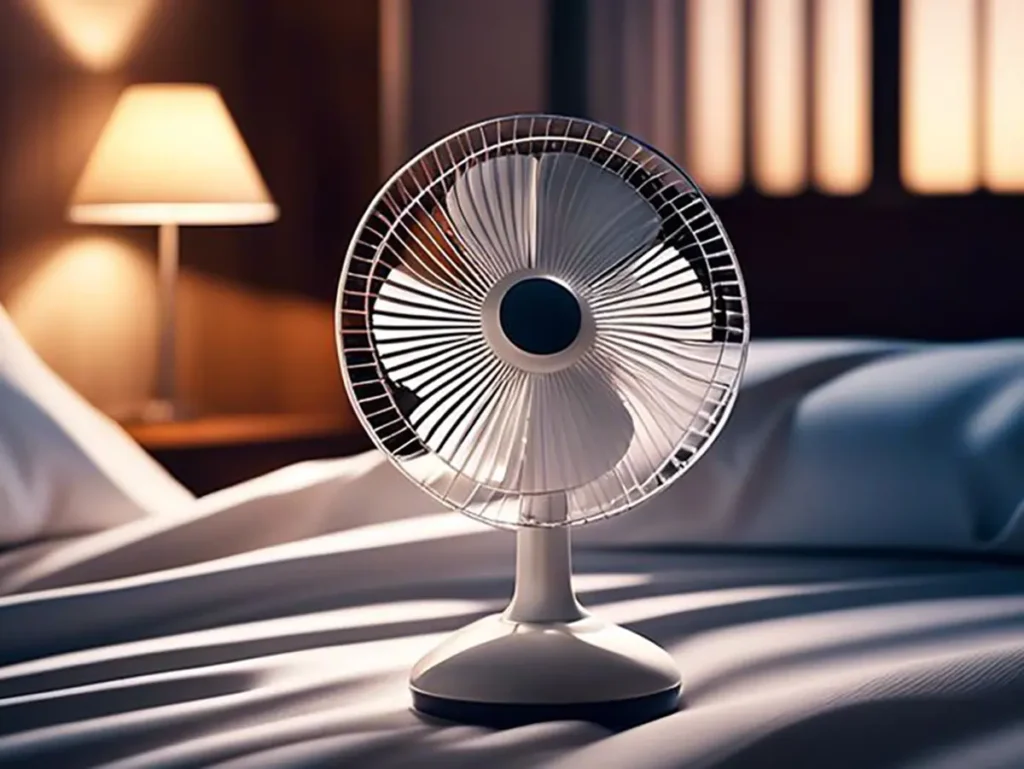Night sweats can disrupt your sleep and leave you feeling uncomfortable and exhausted. For those experiencing this common issue, finding ways to stay calm throughout the night is necessary for a peaceful and restful sleep. This blog post will explore practical tips and strategies to help you manage night sweats effectively. By following these expert recommendations, you can create a more comfortable and conducive sleep environment, waking you up feeling refreshed and rejuvenated each morning. Say goodbye to nights of tossing and turning due to excessive sweating and hello to a good night’s sleep with these valuable insights!
Key Takeaways:
- Choose the right bedding: Opt for breathable fabrics like cotton or moisture-wicking materials to help regulate your body temperature and manage night sweats.
- Stay hydrated: Drink plenty of water throughout the day to avoid dehydration, which can worsen night sweats.
- Avoid caffeine and spicy foods: These can increase your body temperature and make night sweats more severe, so it’s best to avoid them before bedtime.
- Keep your bedroom cool: Use a fan or air conditioning to maintain a comfortable temperature in your bedroom, which will help reduce night sweats.
- Practice relaxation techniques: Stress and anxiety can contribute to night sweats, so try techniques like deep breathing or meditation to help you relax before bed.
Understanding Night Sweats
Causes of Night Sweats
Night sweats can be caused by various factors, including hormonal imbalances, infections, medications, and even certain medical conditions. Hormonal changes, such as those experienced during menopause, can trigger night sweats, as can infections like tuberculosis or HIV. Medications such as antidepressants or hormone treatments may also contribute to excessive sweating during the night.
Health Conditions Related to Night Sweats
Several health conditions are commonly associated with night sweats, including anxiety, hyperthyroidism, and certain types of cancer. Anxiety disorders can lead to increased levels of stress hormones, which can manifest as night sweats. Hyperthyroidism, an overactive thyroid gland, can cause excessive night sweating. Additionally, certain cancers, such as lymphoma or leukaemia, may present with night sweats as a symptom.
Creating a Cool Bedroom Atmosphere
Optimal Room Temperature and Ventilation
| Optimal Room Temperature | Keeping your bedroom between 16-18°C can help regulate your body temperature and prevent night sweats. Use a fan or open windows to improve ventilation. |
| Ventilation | Good airflow is necessary for a cool bedroom atmosphere. To allow for better air circulation, consider using breathable curtains and keeping clutter to a minimum. |
Choosing the Right Bedding and Mattresses
Selecting the right bedding and mattress can make a significant difference in managing night sweats. For sheets and lightweight blankets, opt for breathable materials like cotton or bamboo. A mattress with good airflow and moisture-wicking properties can also help keep you cool throughout the night.
Lifestyle Adjustments for Cooler Nights
Dietary Considerations
When experiencing night sweats, it is essential to pay attention to your dietary choices. Spicy foods, caffeine, and alcohol can all contribute to increased body temperature and night sweats. Opt for lighter meals in the evening and stay hydrated throughout the day to help regulate your body temperature during the night.
Evening Routines and Clothing Choices
Creating a calming evening routine can help prepare your body for a restful night’s sleep. Take a warm bath, practice relaxation techniques such as deep breathing or meditation, and avoid stimulating activities before bedtime. Additionally, choose breathable, moisture-wicking fabrics for your sleepwear to help keep you cool and comfortable during the night.
Advanced Cooling Techniques
- Sleep Technology and Cooling Products
- Home Remedies and Alternative Solutions
Sleep Technology and Cooling Products
Investing in sleep technology and cooling products can make a significant difference in managing night sweats. Look for moisture-wicking mattresses and pillows that help regulate body temperature. Cooling weighted blankets, mattress toppers, and sleepwear made from breathable fabrics like bamboo or moisture-wicking materials can also enhance your sleep quality by keeping you cool throughout the night.
Home Remedies and Alternative Solutions
Aside from cooling products, several home remedies and alternative solutions can help combat night sweats. Simple practices like keeping your bedroom well-ventilated, using a fan, or applying cold packs to pulse points can aid in temperature regulation. Additionally, incorporating relaxation techniques such as meditation or yoga before bed can help reduce stress levels, which can contribute to night sweats.
Staying Cool During the Night – Tips for Managing Night Sweats
Managing night sweats can be challenging, but you can improve your sleep quality with the right strategies. From choosing breathable bedding and sleepwear to adjusting the temperature in your bedroom and practising relaxation techniques, there are various ways to stay cool during the night. It’s important to address any underlying medical conditions or lifestyle factors contributing to your night sweats. Incorporating these tips into your bedtime routine can create a more comfortable and restful sleep environment. Recall that prioritising a relaxed and comfortable sleep environment is crucial for overall health and well-being. Take control of your night sweats and enjoy a more restful sleep.
FAQ
Q: What are night sweats?
A: Night sweats are excessive sweating during the night, which can disrupt sleep and leave you feeling uncomfortable and damp.
Q: What causes night sweats?
A: Night sweats can be caused by various factors, including hormonal changes, certain medical conditions, medications, and sleeping in a hot environment.
Q: How can I stay cool during the night to manage night sweats?
A: To stay cool during the night and manage night sweats, try adjusting the room temperature, using breathable bedding, wearing moisture-wicking sleepwear, and staying hydrated.
Q: Are there any lifestyle changes that can help reduce night sweats?
A: Yes, lifestyle changes such as avoiding spicy foods, caffeine, and alcohol before bed, managing stress levels, and maintaining a healthy weight can help reduce night sweats.
Q: When should I seek medical advice for night sweats?
A: If you experience severe or persistent night sweats accompanied by other symptoms such as fever, unexplained weight loss, or fatigue, it is important to seek medical advice to rule out any underlying health conditions.






